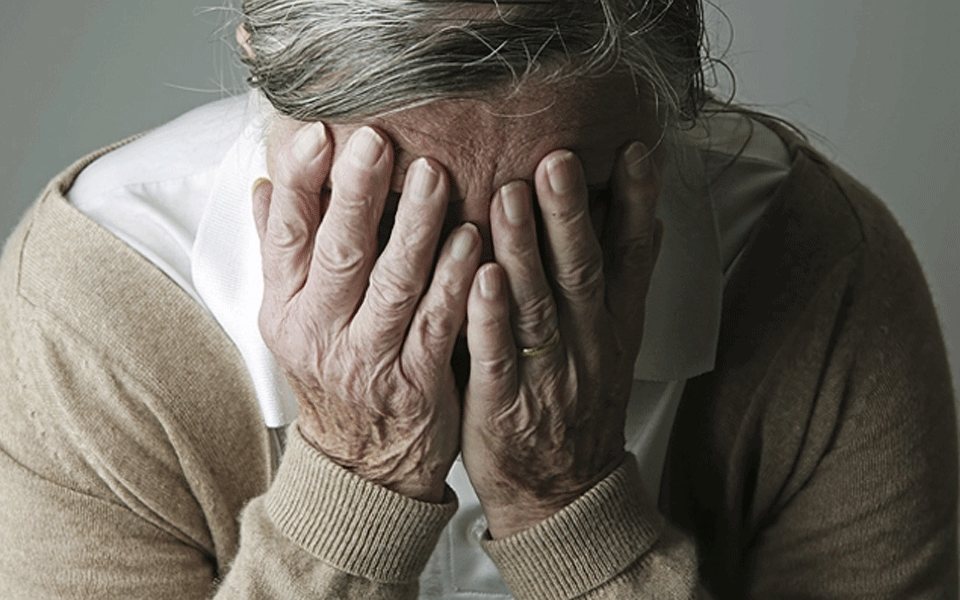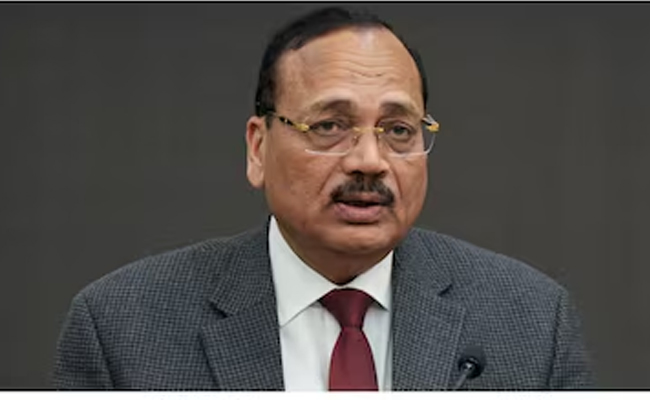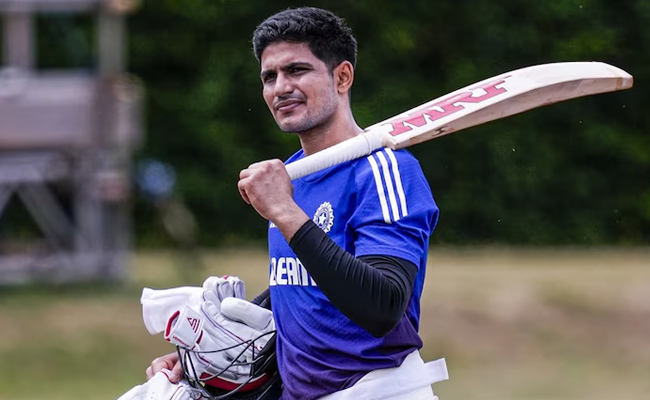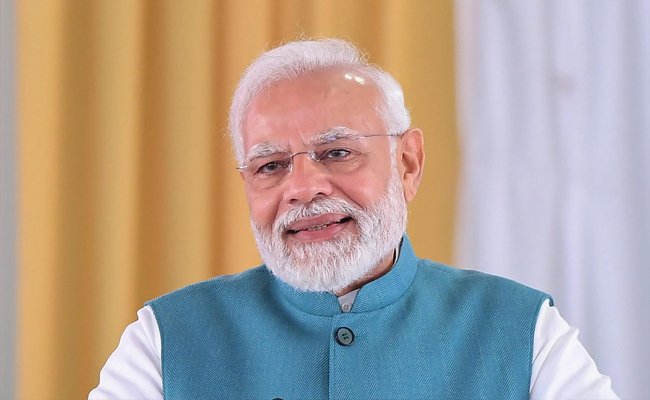On a working day in the outpatient department while I was a Neurology resident I met a mother and a son. To the world mother to child relationship is extremely special but, the mother was unable to recognize her son.
Her son elicited that his mother initially started forgetting where she kept her spectacles, and then missed on sentences. She gradually started forgetting familiar names and could not recognize familiar people. She lost track of her routine activities, gradually became bed ridden and was presently at a stage unable to identify her son.
Alzheimer’s disease, in my clinical practice has always made me feel how important it is to be healthy. Life is about making good memories, but what if the memory is lost gradually.
On November 3, 1906, a clinical psychiatrist and neuroanatomist, Alois Alzheimer, reported " A peculiar severe disease process of the cerebral cortex" to the 37th Meeting of South- West German psychiatrists in Tubingen. He described a 50 year old woman whom he had followed from her admission for paranoia, progressive sleep disturbance, memory impairment, aggression, and confusion, until her death 5 years later. His report noted distinctive plaques and neurofibrillary tangles in the brain histology. It excited little interest despite an enthusiastic response from Kraepelin, who promptly included "Alzheimer's Disease" in the third edition of his text psychiatrie in 1910. Alzheimer published three further cases in 1909 and a "plaque only" variant in 1911, which on re-examination of the original specimens in 1993 showed to be a different stage of the same process. Alzheimer died in 1915, aged 51, soon after gaining the chair of Psychiatry in Breslau, and long before his name became a household word.
World Alzheimer's Day is observed on September 21, every year to raise awareness and educate about Alzheimer's disease and Dementia. This day is observed to understand the importance of talking about dementia and demystify it. Alzheimer's is a progressive disease that causes brain cells to degenerate and die.
Alzheimer’s disease (AD) is a major public health problem and represents commonest form of dementia that affects many aspects of brain functions and contributes to 60–70% of dementia cases. Public awareness on Alzheimer’s disease is very important in identifying the disease early and minimizing progress of symptoms.
The following are the 10 Warning signs of Alzheimer’s according to the centers for disease control (CDC)
Memory often changes as people grow older. Some people notice changes in themselves before anyone else does. For other people, friends and family are the first to see changes in memory, behavior, or abilities. Memory loss that disrupts
daily life is not a typical part of aging. People with one or more of these 10 warning signs should see a doctor to find the cause. Early diagnosis gives them a chance to seek treatment and plan for the future.
- Memory loss that disrupts daily life: forgetting events, repeating yourself or relying on more aids to help you remember (like sticky notes or reminders).
- Challenges in planning or solving problems: having trouble paying bills or cooking recipes you have used for years.
- Difficulty completing familiar tasks at home, at work, or at leisure: having problems with cooking, driving places, using a cell phone, or shopping.
- Confusion with time or place: having trouble understanding an event that is happening later, or losing track of dates.
- Trouble understanding visual images and spatial relations: having more difficulty with balance or judging distance, tripping over things at home, or spilling or dropping things more often.
- New problems with words in speaking or writing: having trouble following or joining a conversation or struggling to find a word you are looking for (saying “that thing on your wrist that tells time” instead of “watch”).
- Misplacing things and losing the ability to retrace steps: placing car keys in the washer or dryer or not being able to retrace steps to find something.
- Decreased or poor judgment: being a victim of a scam, not managing money well, paying less attention to hygiene, or having trouble taking care of a pet.
- Withdrawal from work or social activities: not wanting to go to places of worship or other activities as you usually do, not being able to follow football games or keep up with what’s happening.
- Changes in mood and personality: getting easily upset in common situations or being fearful or suspicious.
As there is little understanding of the disease, the stigma associated with it is a global problem. Alzheimer’s disease is the most common form of dementia. It affects parts of the brain that controls memory, judgment and language function, which can interfere with the individual’s activities of daily living.
Some of the risk factors include blood pressure, smoking, sedentary life style. Thus, by modifying these risk factors, one can slow the progression of the illness.
Timely consultation to the doctor helps to delay the progression to some extent. It is also important to raise awareness about this disease among the family members, as at one point in the course of the illness, care giver responsibility becomes the most important aspect in the treatment.
There is a global need to raise awareness of this disease. One can help by individualizing the dementia care, providing care giver support, early diagnosis and destigmatisation. Together, we can reach out to the dementia patients as well as their family members and provide the necessary care and support. This year, on World Alzheimer’s Day, we must pledge to understand and comfort the dementia patients.

Dr. Salma Suhana
Assistant professor, Department of Neurology
Yenepoya Medical College and Hospital
Deralakatte, Mangalore.
Consultant Neurologist
Medi Nerv, Mangalore.
Let the Truth be known. If you read VB and like VB, please be a VB Supporter and Help us deliver the Truth to one and all.
Jaisalmer (PTI): Pushing for a "unified judicial policy", Chief Justice of India Surya Kant on Saturday said technology can help align standards and practices across courts, creating a "seamless experience" for citizens, regardless of their location.
He said high courts -- due to the federal structure -- have had their own practices and technological capacities, and "regional barriers" can be broken down with technology to create a more unified judicial ecosystem.
Delivering the keynote address at the West Zone Regional Conference in Jaisalmer, Kant proposed the idea of a "national judicial ecosystem" and called for an overhaul of India's judicial system with the integration of technology.
"Today, as technology reduces geographical barriers and enables convergence, it invites us to think of justice not as regional systems operating in parallel, but as one national ecosystem with shared standards, seamless interfaces, and coordinated goals," he said.
He emphasised how the role of technology in the judiciary has evolved over time.
"Technology is no longer merely an administrative convenience. It has evolved into a constitutional instrument that strengthens equality before the law, expands access to justice, and enhances institutional efficiency," he said, highlighting how digital tools can bridge gaps in the judicial system.
Kant pointed out that technology enables the judiciary to overcome the limitations of physical distance and bureaucratic hurdles.
"It allows the judiciary to transcend physical barriers and bureaucratic rigidities to deliver outcomes that are timely, transparent and principled," he said, adding that the effective use of technology can modernise the delivery of justice and make it more accessible to citizens across the country.
The CJI called for implementing a "unified judicial policy".
He said India's judicial system has long been shaped by its federal structure, and different high courts have their own practices and technological capacities.
"India's vast diversity has led to different high courts evolving their own practices, administrative priorities and technological capacities. This variation, though natural in a federal democracy, has resulted in uneven experiences for litigants across the country," he said.
Kant underscored that predictability is crucial for building trust in the judicial system.
"A core expectation citizens place upon the courts is predictability," he said, adding that citizens should not only expect fair treatment but also consistency in how cases are handled across the country.
He pointed to the potential of technology in improving predictability.
"Technology enables us to track systemic delays and make problems visible rather than concealed," he said.
By identifying areas where delays occur, such as in bail matters or cases involving certain types of disputes, courts can take targeted action to address these issues and improve efficiency, Kant said.
The CJI explained that data-driven tools could identify the reasons behind delays or bottlenecks, allowing for faster, more focused solutions.
"Technology enables prioritisation by flagging sensitive case categories, monitoring pendency in real time and ensuring transparent listing protocols," he said.
Justice Surya Kant also discussed the importance of prioritising urgent cases where delays could result in significant harm. He highlighted his recent administrative order that ensures urgent cases, such as bail petitions or habeas corpus cases, are listed within two days of curing defects.
"Where delay causes deep harm, the system must respond with urgency," he stated, explaining that technology can help courts identify and expedite such cases.
Kant also raised the issue of the clarity of judicial decisions.
He noted that many litigants, despite winning cases, often struggle to understand the terms of their judgment due to complex legal language.
"Although the orders had gone in their favour, they remained unsure of what relief they had actually secured because the language was too technical, vague or evasive to understand," he said.
He advocated for more uniformity in how judgments are written.
"A unified judicial approach must therefore extend to how we communicate outcomes," he said.
The CJI also discussed the role of AI and digital tools in improving case management. He pointed to the potential of AI-based research assistants and digital case management systems to streamline judicial processes.
"Emerging technological tools are now capable of performing once-unthinkable functions. They can highlight missing precedent references, cluster similar legal questions, and simplify factual narration," he said, explaining how these technologies can help judges make more consistent decisions.
He also highlighted tools like the National Judicial Data Grid and e-courts, which are already helping to standardise processes like case filings and tracking.
Kant reiterated that the integration of technology into the judicial process is not just about improving efficiency but about upholding the integrity of the system and strengthening public trust.
"The measure of innovation is not the complexity of the software we deploy, but the simplicity with which a citizen understands the outcome of their case and believes that justice has been served," he said.





